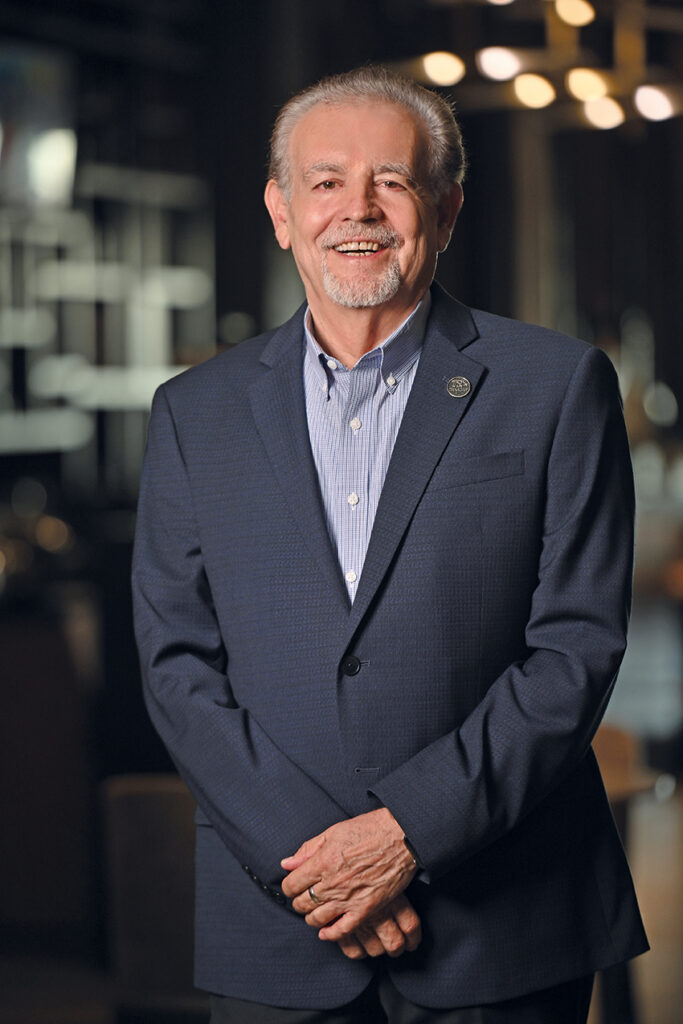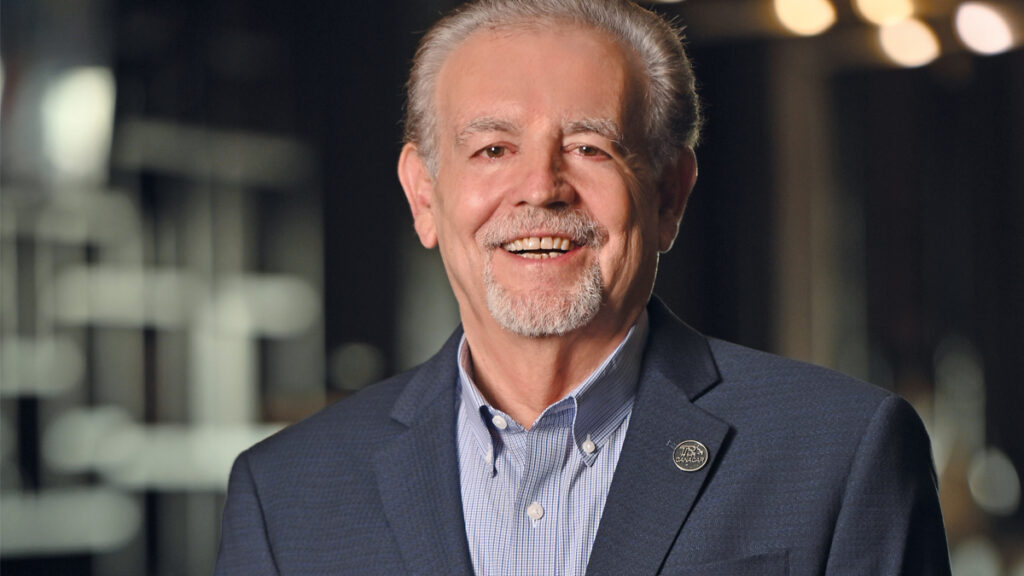Fe, Valores y Transporte con Propósito,
Bajo la visión de Manuel Sotelo Suárez, La Asociación de Transportistas nació en 1995, recuerda que, en sus inicios, predominaba la falta de conocimiento mutuo entre transportistas y dependencias como la Policía Federal de Caminos y aduanas, pero el gremio pronto se consolidó con avances históricos. Destacan la compra conjunta de seguros con tarifas preferenciales, la regularización de vehículos con placas federales y la gestión de licencias que facilitaron el cruce hacia Estados Unidos. Incluso lograron flexibilizar requisitos de licencias internacionales, reconociendo el dominio práctico del inglés en la frontera.
Uno de los logros más emblemáticos fue la construcción del Puente Libre: en apenas cuatro años, los transportistas reunieron 7.1 millones de dólares para ampliar la infraestructura de un solo puente con ocho carriles a cuatro puentes con doce carriles en total , mejorando la capacidad operativa de la región. La concesión de 30 años firmada con el Gobierno del Estado se cumplió en 2023, en coordinación con instancias binacionales como la Comisión Internacional de Límites y Aguas, marcando un antes y un después en la historia logística de Ciudad Juárez.
Actualmente, el sector enfrenta retos serios: carreteras sin mantenimiento, trámites lentos por falta de personal en aduanas y proyectos tecnológicos inconclusos que limitan la competitividad. Aun así, el transporte de carga sigue siendo columna vertebral de la economía: genera más de 25 mil empleos, aporta cerca de 3.5 puntos al PIB y mueve el 80% de las exportaciones de Juárez hacia EE.UU., consolidando a Chihuahua como líder nacional en manufactura exportadora por 16 años.
La historia de Manuel Sotelo está ligada también a Fletes Sotelo, empresa fundada en 1975 como un proyecto familiar dedicado a la maquila. Tras perder el 85% de sus clientes en 1990, la compañía se reinventó, diversificó servicios y retomó fuerza al ganar un concurso en 1992 que la consolidó en la industria. Su crecimiento se cimentó en la honestidad, la seguridad y en certificaciones pioneras como C-TPAT y OEA, de las primeras en obtenerse en México. A partir de 2011, Manuel Sotelo Suárez experimentó una transformación espiritual que marcó un antes y un después en su vida y en la filosofía del negocio.
Desde entonces, la fe cristiana se convirtió en el eje rector de la compañía. Manuel lo explica con claridad: “el objetivo ya no es solo ganar dinero, sino tratar bien a nuestros colaboradores, reflejar principios éticos y poner a Dios en el centro de nuestras decisiones”.
Esta visión se traduce en acciones concretas: un ambiente laboral humano, atención a las necesidades de los empleados, seguridad como prioridad y un liderazgo basado en honestidad y servicio. “Hoy más que nunca necesitamos modernización, capacitación y unidad para enfrentar los retos del presente y del futuro”, asegura Manuel Sotelo, convencido de que el transporte no solo mueve carga: mueve empleos, comunidades y la economía entera de la frontera.

Manuel Sotelo Suárez: History and Achievements of the Transport Association
Faith, Values, and Purposeful Transportation
Under the vision of Manuel Sotelo Suarez, the Transport Association was founded in 1995. He recalls that, in its early days, there was little mutual understanding between transporters and agencies such as the Federal Highway Police and customs. However, the industry soon consolidated with historic advances. Among the most notable were joint insurance purchases with preferential rates, the regularization of vehicles with federal plates, and the management of licenses that facilitated crossings into the United States. They even succeeded in making international license requirements more flexible, recognizing the practical use of English along the border.
One of the most emblematic achievements was the construction of the Puente Libre: in just four years, transporters raised $7.1 million to expand the infrastructure from a single bridge with eight lanes to four bridges with a total of twelve lanes, boosting the region’s operational capacity. The 30-year concession signed with the State Government was fulfilled in 2023, in coordination with binational entities such as the International Boundary and Water Commission, marking a turning point in the logistics history of Ciudad Juarez.
Currently, the sector faces serious challenges: deteriorating roads, slow procedures due to understaffing in customs, and unfinished technology projects that limit competitiveness. Even so, freight transport remains the backbone of the economy: it generates more than 25,000 jobs, contributes nearly 3.5 points to the GDP, and moves 80% of Juarez’s exports to the U.S., solidifying Chihuahua as the national leader in export manufacturing for 16 consecutive years.
The story of Manuel Sotelo is also tied to Fletes Sotelo, a company founded in 1975 as a family project dedicated to serving the maquiladora industry. After losing 85% of its clients in 1990, the company reinvented itself, diversified its services, and regained strength by winning a major bid in 1992 that secured its place in the industry. Its growth was built on honesty, safety, and pioneering certifications such as C-TPAT and OEA, among the first to be obtained in Mexico. Beginning in 2011, Manuel Sotelo Suarez experienced a spiritual transformation that marked a turning point in both his life and the company’s philosophy.
Since then, Christian faith has become the guiding principle of the company. Manuel explains it clearly: “The goal is no longer just to make money, but to treat our collaborators well, reflect ethical principles, and put God at the center of our decisions.”
This vision translates into concrete actions: a humane work environment, attention to employees’ needs, prioritizing safety, and leadership grounded in honesty and service. “Today more than ever we need modernization, training, and unity to face the challenges of the present and the future,” says Manuel Sotelo, convinced that transportation does more than move cargo—it moves jobs, communities, and the entire economy of the border region.

